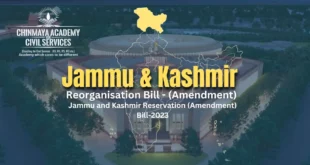The Supreme Court on October 8 issued notice to the Centre and the Election Commission on a public interest litigation petition by a non-political forum seeking an exercise, similar to the one done in Assam, to update the National Register of Citizens (NRC) for Tripura. Pradyot Bikram Manikya Debbarma, son of Tripura’s last king, filed an affidavit in the court a fortnight later in favour of the NRC. A long-standing demand of Tripura’s ‘tribal nationalists’ for deportation of illegal migrants from Bangladesh resulted in these petitions, widening the gap between the indigenous people and non-tribal settlers, mostly Bengali Hindus and some Muslims. What is the demand about? Tripura is often cited in the northeastern region as an example of how migration can alter the demographic pattern of the State. Census data show the population of Tripura’s 19 Scheduled Tribes dropped from 63.77% in 1881 to 31.78% in 2011. This is attributed to the migration of 6.10 lakh Bengalis — the figure almost equal to the State’s total population in 1951 — from East Pakistan (now Bangladesh) between 1947 and 1971. Going by the language census of 2011, Tripura has 24.14 lakh Bengali speakers, thrice the 8.87 lakh who speak Kokborok, the language of the largest tribal group. Unlike the NRC of Assam, where the cut-off date for excluding the putative foreigners is March 24, 1971, tribal groups in Tripura want July 19, 1948, as the date of determining migrants as per the provision of Indian nationality laws for people who migrated from territories that became East Pakistan. The Tripura People’s Front suggested this cut-off date in its petition. The petition followed former extremist leader and chief of Indigenous Nationalist Party of Twipra Bijoy Kumar Hrangkhawl’s meeting with Union Home Minister Rajnath Singh. What is the Bengali view? Bengali academics and politicians admit migration was high after Partition in 1947, but the forebears of the Bengali migrants were essentially subjects or tenants of Tripura’s Manikya kings since the 13th century. Tripura became a princely state during British rule. The kings had sway over Hill Tippera, the hilly kingdom roughly the present area of Tripura, besides a zamindari in British India called Chakla Roshanabad or Tippera, comprising five districts of the present-day Bangladesh, then called East Bengal. These districts are Comilla, Brahmanbaria, Noakhali, Chittagong and a part of Sylhet. The kingdom’s revenue came from the resources-rich areas inhabited by Bengalis. The royalty, belonging to the largest tribal group called Tripuri, didn’t just keep the Bengalis in the plains of Chakla Roshanabad. The Rajmala , Tripura’s royal chronicles, says the kings brought educated Bengalis to run the administration and encouraged settlement of Bengali peasants with incentives like land grants. When did the conflict begin? King Bir Bikram Kishore Manikya (1923-1947) realised that his tribal subjects could be outnumbered by the Bengalis and created a 2,050-square mile tribal reserve in 1943 for the Tripuri, Reang, Halam, Noatia and Jamatiya tribes. This was the precursor to the Tripura Tribal Areas Autonomous District Council, exclusive to these five and 14 other tribes. The fear of being swamped by Bengalis led to tribal extremism, first in the 1960s, and with more intensity two decades later. Tribal groups killed 1,400 Bengalis in 1980, but counter-insurgency operations made most outfits declare truce by the late 1990s. The scars remained, so much so that tribal NGOs pushed for switching the script of their Kokborok language from Bengali to Roman. The demand for Twipraland, a state for tribal people, gained ground. Where does the NRC stand? Chief Minister Biplab Kumar Deb initially rejected the demand for the NRC, but said later that his government would undertake the exercise if it succeeded in Assam. The ruling BJP’s ally Indigenous People’s Front of Tripura – behind the Twipraland demand – favours the NRC. Pradyot Manikya, a Congress leader, feels an error-free NRC could help Tripura revisit political representation.
Source : https://www.thehindu.com/todays-paper/tp-national/a-drive-to-register-citizens/article25350232.ece
 Chinmaya IAS Academy – Current Affairs Chinmaya IAS Academy – Current Affairs
Chinmaya IAS Academy – Current Affairs Chinmaya IAS Academy – Current Affairs



